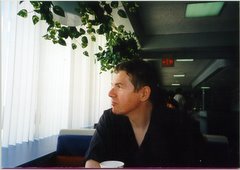The divine Arthur, c. 1905
As part of the content-rich Resource Guide at the end of my supernatural horror short story, "It's Your Funeral," I offer five short essays on the masters of modern supernatural horror fiction—Arthur Machen, H.P. Lovecraft, Robert Aickman, Clark Ashton Smith, and Ambrose Bierce.
The beautiful Helen Vaughan of Machen's classic The Great God Pan, one of the great femme fatales in modern literature
Here are my insights on the great Arthur Machen, an inspiring writer who’s been a great influence on me.
Claude Michel (known as Clodion), "Satyr and Nymph," 1780s: the terrible secret of The Great God Pan
Machen is certainly an influence on my short story "It's Your Funeral," which is about a certain famed Hollywood superstar who is alleged to secretly practice Santería—to further her career.
You can order it as an ebook here on Amazon for only $.99.
My treasured letter from Mr. Derleth
On Christmas Day 1969, shortly before he died, August Derleth told me in a phone conversation that Arthur Machen was a greater writer than H.P. Lovecraft. At the time, as a loyal teenage acolyte of the Lovecraft cult, I disbelieved him, but now I agree with the great man.
August Derleth
He was in a position to know. As the founder of Arkham House, he single-handedly rescued H.P. Lovecraft from pulp obscurity, and he’s the sole reason why Lovecraft why is in the Library of America. Star Trek and Star Wars and the rest of the entire postwar science fiction boom never would have happened without him. It was the success of Arkham House that emboldened postwar mainstream U.S. book publishers to publish science fiction and fantasy.
The legendary Arkham House logo
There’s magic in Machen’s writing—and Stephen King is right in assessing his awe-inspiring novella The Great God Pan as maybe the greatest single supernatural horror story ever written. It’s as great, or greater, than Strange Case of Dr. Jekyll and Mr. Hyde—and Robert Louis Stevenson’s novella is a genuine work of art: literature.
Audrey Beardsley's famed title page for the original edition of The Great God Pan; like Beardsley, Machen was dubbed a Decadent
Helen Vaughan, the unforgettable mutant hybrid protagonist of The Great God Pan, reverts to form at the end of the story
Some might argue that Machen’s story The White People (Alice in Wonderland on very bad acid) is even greater than The Pan, as he called it. That said, there’s no question that his novels The Hill of Dreams and The Secret Glory are serious literary classics.
Whatever you do, don't play with the White People!
A fervent Christian mystic, Machen hated post-Industrial Revolution materialism and believed passionately that there’s more to our physical world and everyday life than what meets the eye; the surface of things merely masks a coruscating realm of wonder, awe, and ecstasy that only trained (or open) hearts can become aware of. I recently devoured his complete works, and I found him a wondrous antidote to our arid, sterile techno-desert of smartphones and emotional distancing masking brutal alienation.
Machen the bearded bohemian, around the time he composed The Great God Pan
He was born in 1863 in the wilds of Wales in a wholly pre-industrial world, fully in touch with a pre-Roman pagan sensibility, and as he matured as a writer, he saw the evil attacking us was not so much the lurking Other (as he’d seen the Great God Pan), but the horrible 9-to-5 grind that by 1890 was deadening modern man to the beauty and sacredness of the world around us. Read his masterly A Fragment of Life (1905), where he expresses this theme beautifully.
The astonishing transformation scene at the end of The Novel of the White Powder, which makes Dr. Jekyll and Mr. Hyde look tame
It’s no mystery why he was admired by his personal friends William Butler Yeats and Oscar Wilde; Sir Arthur Conan Doyle called him a genius. Jorge Luis Borges judged him a great writer. All hail to Tartarus Press for keeping this master writer in print!
 |
A shelf of Machen Tarturus Press editions
The literary lion at home in Amersham, England in 1936
















No comments:
Post a Comment